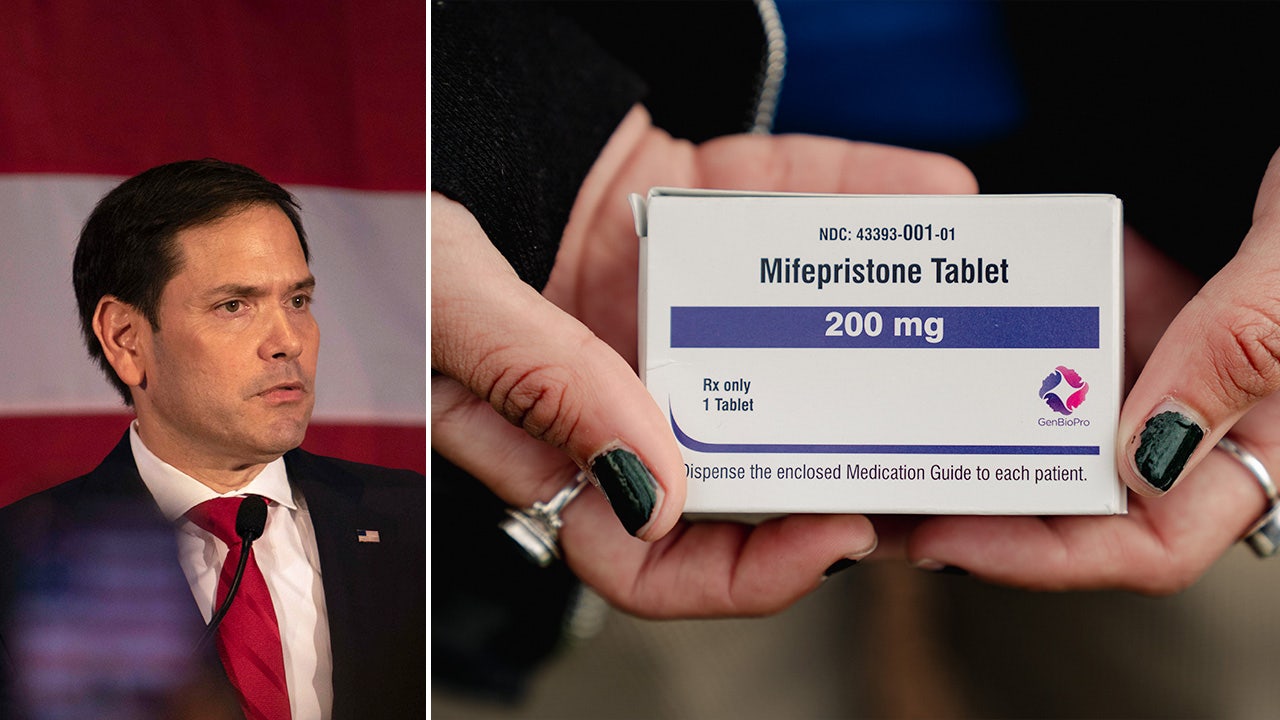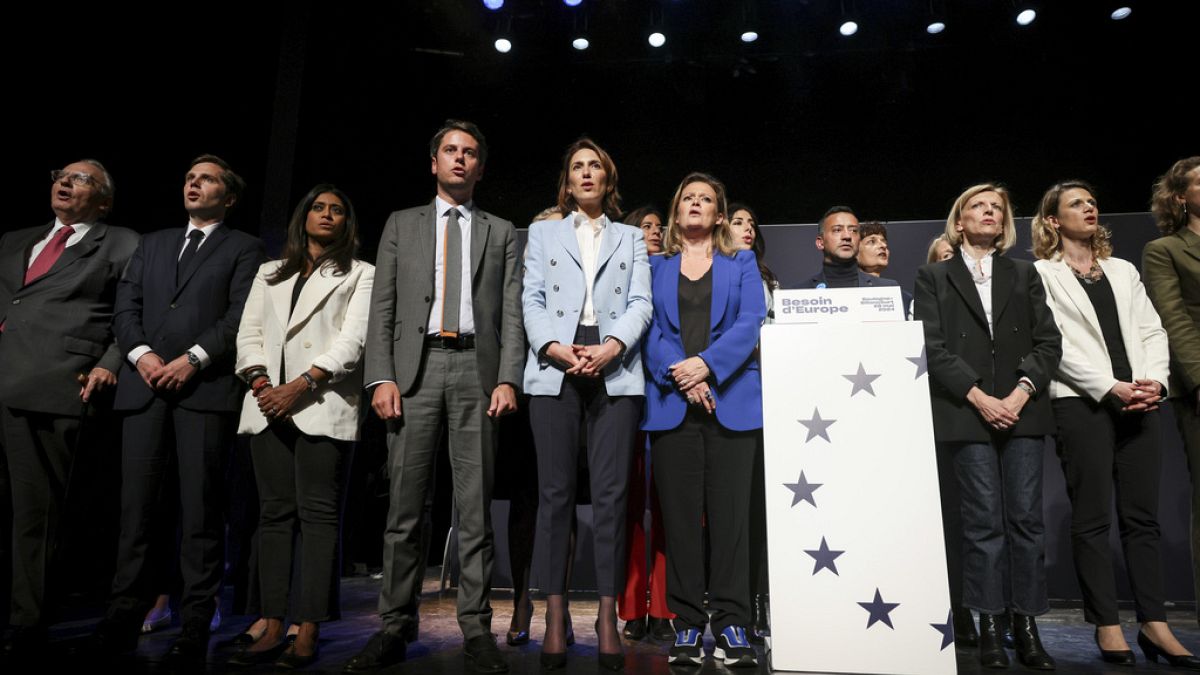Business
Snoop Dogg puts mind, money on bowl. Not that kind of bowl. A college football bowl game
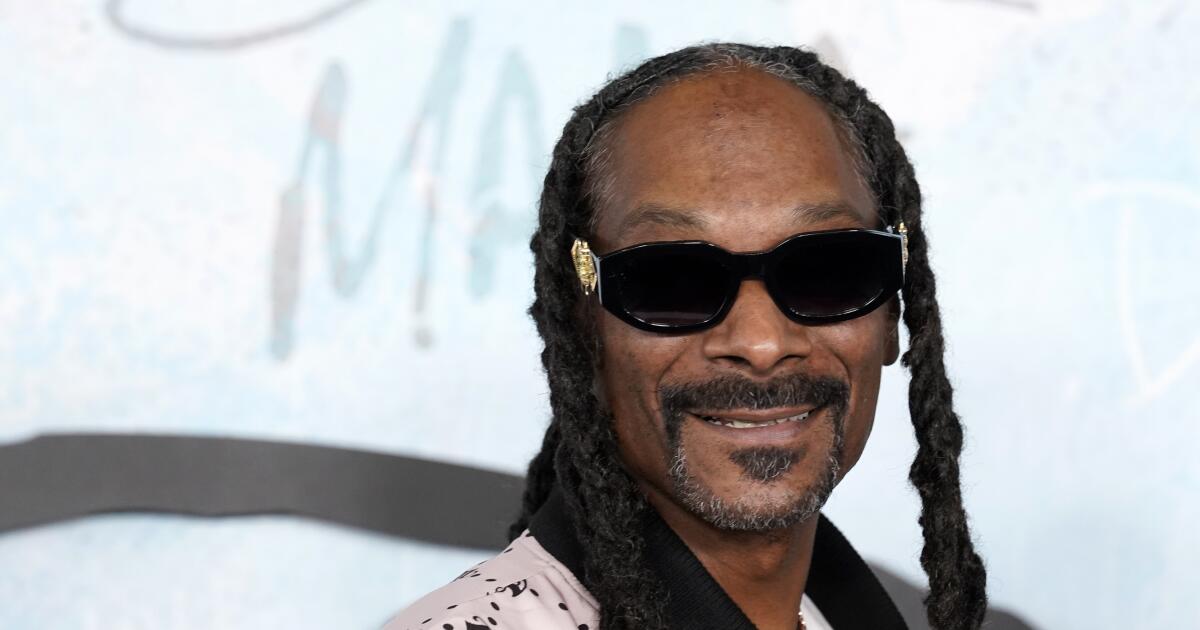
Thirty years ago, Snoop Dogg was sipping on gin and juice, with his mind on his money and his money on his mind.
These days, the Long Beach-based rapper and business man is running a company that sells gin and juice products, with his mind apparently on college football.
Introducing the newly renamed “Snoop Dogg Arizona Bowl presented by Gin & Juice by Dre and Snoop,” which will take place Dec. 28 in Tucson, Ariz.
“College football fans are exhausted by the constant talk around NIL, conference realignment, coach movement, transfer portal and super conferences,” Snoop Dogg said in a video posted Monday on his social media accounts. “So it’s time we get back to the roots of college football, what it was focused on — the colleges, the players, the competition, the community, the fan experience and the pageantry.”
Held at Arizona Stadium, home of the Arizona Wildcats, the bowl started in 2015 and has been tied to the Mountain West and Mid-American conferences since 2020. Gin & Juice By Dre and Snoop is a ready-to-drink, gin-based canned product from the new premium spirits company launched earlier this year by Snoop Dogg and Dr. Dre, a rapper, producer and business mogul.
With a name inspired by “Gin & Juice,” the 1994 single by Snoop Dogg and produced by Dr. Dre, the company is the first alcohol brand to serve as a title sponsor for an NCAA bowl game.
“Snoop’s passions for supporting youth football, college football and music completely aligned with things we were already doing and joining forces meant that we could elevate the entire Bowl experience together,” Arizona Bowl executive director Kym Adair told The Times in an email Tuesday. “In fact, three players from his SYFL (Snoop Youth Football League) currently play at the University of Arizona, where we play our game.
“We also quickly recognized that we shared the desire to highlight the joy and pageantry that accompanies the celebration of college football through our bowl game and what it means to the players, the participating universities, our community, and the fans.”
The multi-year agreement with Snoop Dogg and his company comes as the previous three-year deal with Barstool Sports as the event’s title sponsor comes to an end.
“We had a fantastic run with Barstool Sports,” Adair said. “They were everything we had hoped they would be and more and will forever be a part of the fabric of our game.”
That partnership was seen as controversial by some. Barstool Sports founder Dave Portnoy has made numerous comments considered to be misogynistic or racist. Portnoy has also been accused of sexual misconduct by multiple women; he has denied all of those allegations.
The Pima County Board of Supervisors voted to withdraw its $40,000 funding for the Arizona Bowl in 2021. Adair said her company hasn’t spoken with the county about funding at this point.
Snoop Dogg isn’t exactly the most clean-cut guy either.
Much of his music contains offensive language. He has admitted to a past as a pimp and having gang ties. In 1996, he was acquitted of first- and second-degree murder charges in the shooting death of a gang member three years earlier.
But Snoop’s image has taken a softer turn over the years. He’s funny, friendly and extremely easy going. He’s known as Coach Snoop to the hundreds of inner-city kids who have participated in his nonprofit youth football league since 2005.
And he’s seemingly everywhere.
“Snoop is an American music icon, a successful businessman, a pop-culture phenomenon, the face of the Olympics on NBC this Summer, a brand ambassador for huge companies and someone that loves football so much that he started his own youth football league (SYFL) to serve young athletes in California,” Adair said. “He is ubiquitous.”
Adair added, “We have only heard positive reviews of our new partnership.”
A number of events will take place tied to the event, including a Snooper Bowl featuring youth teams from Arizona and California. Snoop Dogg also could make an appearance in the booth for the Arizona Bowl providing color commentary.
“Being a fan, coach, supporter of all levels of the game, I’ve sent many players through my SYFL to colleges and the NFL, so it’s only fitting that I step up and help get this thing right,” Snoop Dogg said in the video. “I’m ready to bring the juice back to college football.”

Business
Read the Jury Instructions in the Trump Manhattan Criminal Trial

Reminder: Fairness
Remember, you have promised to be a fair juror. A fair juror
is a person who will keep their promise to be fair and impartial
and who will not permit the verdict to be influenced by a bias or
prejudice in favor of or against a person who appeared in this
trial on account of that person’s race, color, national origin,
ancestry, gender, gender identity or expression, religion,
religious practice, age, disability or sexual orientation, and
further, a fair juror must be mindful of any stereotypes or
attitudes about people or about groups of people that the juror
may have, and must not allow those stereotypes or attitudes to
affect their verdict.
As I have explained, we all develop and hold unconscious
views on many subjects. Some of those unconscious views may
come from stereotypes and attitudes about people or groups of
people that may impact on a person’s thinking and decision-
making without that person even knowing it. As a juror, you are
asked to make a very important decision about another member
of the community. I know you would not want to make that
decision based on such stereotypes or attitudes, that is, on what
we call implicit biases, and it would be wrong for you to do so. A
fair juror must guard against the impact of such stereotypes or
attitudes. You can do this by asking yourself during your
deliberations whether your views and conclusions would be
different if the defendant, witnesses or others that you have
heard about or seen in court were of a different race, color,
national origin, ancestry, gender, gender identity or expression,
religious practice, age or sexual orientation, or if they did not
have a disability. If the answer is yes, then, in keeping with your
promise to be fair, reconsider your views and conclusions along
with the other jurors, and make sure your verdict is based on the
evidence and not on stereotypes or attitudes. Justice requires no
less.
Page 3
Business
Column: With Live Nation lawsuit, government signals it's fed up with alleged corporate scofflaws
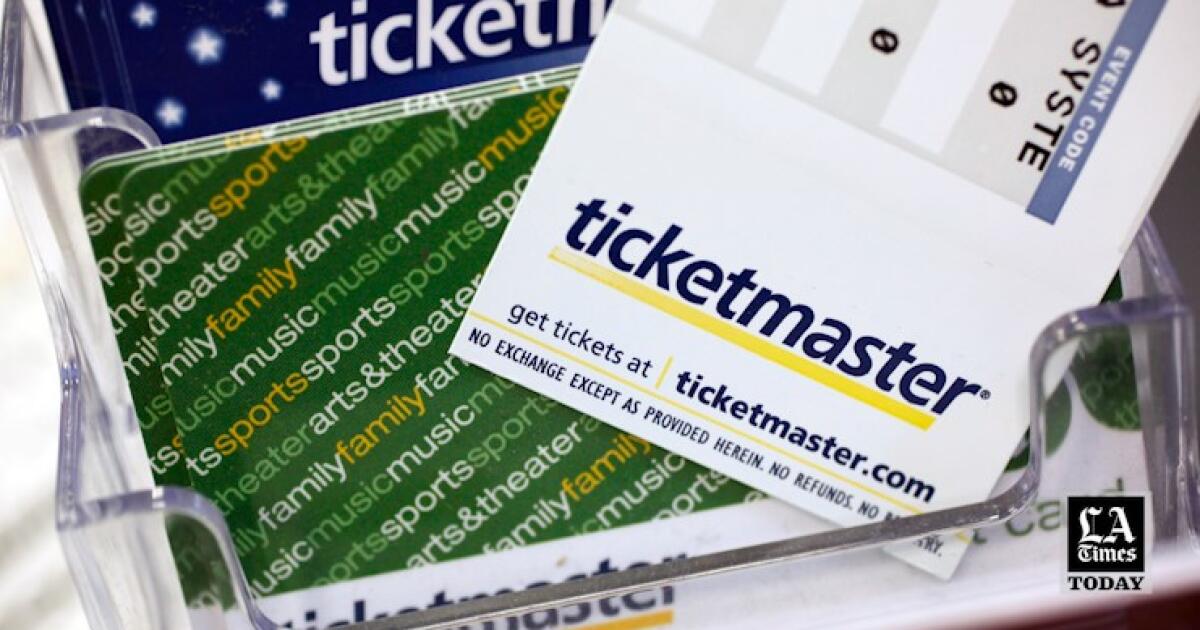
Is there a better example of arrogant corporate behavior than flouting a government decree — not once but multiple times? That’s the question raised by the antitrust lawsuit against the giant concert and ticketing conglomerate Live Nation alleging a raft of monopolistic practices.
The lawsuit, filed Thursday by the Department of Justice, 29 states and the District of Columbia, draws a picture of a company that has ruthlessly exploited its multiple roles as a dominant concert promoter, dominant owner or controller of concert venues, and dominant ticketing manager.
The combination allows Live Nation to exercise “control over which artists perform on which dates at which venues,” as well as “how fans are able to purchase tickets … and what fees those fans will pay,” according to the lawsuit.
Venues throughout the United States have come to expect that refusing to contract with Ticketmaster will result in the venue receiving fewer Live Nation concerts or none at all.
— US v. Live Nation
The plaintiffs’ goal is to break up Live Nation — specifically, to force it to divest Ticketmaster, the ticketing service it merged with in 2010. To the federal officials and the states, the Ticketmaster deal was the original sin allowing Live Nation to build itself a near-monopoly in the live music industry.
This was predictable: Mergers that brought together content producers and content distributors have been a persistent headache for antitrust enforcers — witness the mergers of NBCUniversal with the cable company Comcast and AT&T with Time Warner, the owner of CNN, HBO, Warner Bros. and much more.
Seeing anticompetitive problems on the horizon, the U.S. and 19 states originally sued to block the Live Nation-Ticketmaster deal in 2010. The case was settled with a consent decree in which Live Nation promised not to condition the provision of live shows to venues that chose not to use Ticketmaster as their ticketing agent, or to threaten or retaliate against any venues contracted with a rival ticketer, such as StubHub or SeatGeek.
By 2020, the government said it had compiled evidence that Live Nation had been violating the decree for years by doing exactly what it had promised not to do. “Venues throughout the United States,” the government alleged, “have come to expect that refusing to contract with Ticketmaster will result in the venue receiving fewer Live Nation concerts or none at all. … This is a loss that most venues can ill-afford to risk.”
The government sued again, this time settling the case with a deal that extended the initial consent decree by more than five years (to Dec. 31, 2025), imposed an independent monitor on the company, and set a penalty of $1 million for each violation.
Yet here we are again. Since the 2020 settlement, according to the new lawsuit, “Live Nation and Ticketmaster have committed additional, different, and more expansive violations of the antitrust laws.” The consent decrees, the lawsuit says, have “failed to restrain Live Nation and Ticketmaster from violating other antitrust laws in increasingly serious ways.”
Now the plaintiffs say they’re serious. Live Nation has thumbed its nose at the authorities for more than 20 years, the lawsuit says. Live Nation and Ticketmaster got what they wanted in negotiations with the government in 2010 and “promptly consummated” their deal, but they “failed to live up to their end of the bargain.” Yes, the government has needed some two decades to decide to take a stand, but it may be progress that’s it’s finally trying to do so now.
What does Live Nation have to say about all this? Mostly huffing and puffing. The company attributes the case filing to “intense political pressure on DOJ to file a lawsuit, and a long-term lobbying campaign from rivals trying to limit competition.” It calls itself “another casualty of this Administration’s decision to turn over antitrust enforcement to a populist urge that simply rejects how antitrust law works. … In reality it is just anti-business.”
The political pressure, the company says, derives in part from consumer frustration with high ticket prices and extortionate service fees; it warns that its divesting Ticketmaster won’t do anything to reduce ticket prices or fees and that Ticketmaster’s “commissions” as a share of total prices are much lower than those of other “digital marketplaces” such as Airbnb, Uber and PlayStation.
As far as I’m aware, none of those firms is in the live music business, but Live Nation’s whine may be a hint of what its legal defense may be. One key defense in antitrust cases is to try to define the market allegedly being monopolized as broadly as possible, minimizing the defendant’s share of that relevant market.
The government plaintiffs say Live Nation controls 60% of concert promotions at major venues, owns or controls 60% of the top amphitheaters in the U.S., and through Ticketmaster controls 80% or more of major venues’ primary ticketing for concerts. If Live Nation can guide a judge or jury into thinking of its market as “digital marketplaces” generally, its percentages will look measly.
Live Nation also says that its operating profit margin is only 1.5%, while those of Meta, Alphabet and Apple are all 24% or higher. Of course those companies are all in businesses different from Live Nation’s — indeed, different from one another’s.
Before going more deeply into the allegations against Live Nation, a few words about Ticketmaster’s history. The company’s grip on the live ticketing market and its habit of mulcting concertgoers with junk fees have existed for decades, long predating its merger with Live Nation.
In the mid-1990s, Pearl Jam, then the bestselling band in the country, picked a fight with Ticketmaster over fees it charged for the band’s shows. Even then the ticket agency was too powerful to beat. The conflict, which was closely followed by my late colleague Chuck Philips, ended with a loss for Pearl Jam, which eventually had to give up its plans to stage a concert tour without Ticketmaster’s participation. It resulted in a congressional hearing and an antitrust investigation, but no government action.
Popular touring artists have regularly groused about Ticketmaster since then. Garth Brooks, Neil Young, R.E.M., the Grateful Dead and Aerosmith were among the acts that supported Pearl Jam in its fight. Most recently, technological glitches connected with Ticketmaster’s handling of tickets for Taylor Swift’s Eras tour infuriated fans and provoked another congressional hearing; Ticketmaster blamed the fiasco on scalpers and astronomical demand for the tour.
That brings us back to the latest lawsuit. The government plaintiffs paint Live Nation as a corporation so arrogant it would make Shakespeare’s Iago blush. The plaintiffs offer chapter and verse of episodes in which Live Nation allegedly secured contracts for Ticketmaster by hinting to venues, if not stating outright, that switching to a rival would mean the loss of Live Nation dates.
The lawsuit quotes a 2019 interview with Variety in which Live Nation Chief Executive Michael Rapino acknowledged that under the 2010 consent decree, “We can’t say to a Ticketmaster venue that says they want to use a different ticketing platform, ‘If you do that, we won’t put shows in your building.’” But he also put into words an implicit threat: “We have to put the show where we make the most economics, and maybe that venue [that wants to use a different ticketing platform] won’t be the best economic place anymore because we don’t hold the revenue.”
Rapino also said , “ Every now and then one of our competitors runs to the DOJ. … We get an inquiry from the DOJ … and we’ve never found anything wrong.” If Live Nation was breaching its consent decree, he added, the company “would have been exposed as being in violation long ago.” About three months after he offered that cocksure assurance, the Justice Department filed a second lawsuit alleging that Live Nation had been consistently violating the consent decree.
The most interesting passage in the new lawsuit concerns Live Nation’s relationship with its onetime competitor, Oak View Group. That firm was founded in 2015 by Tim Leiweke, a former executive with Anschutz Entertainment Group, and agent and manager Irving Azoff. According to the lawsuit, the group’s contracts with leading venues and artists quickly turned into a troubling rival to Live Nation.
The two companies reached a cooperative arrangement in which Oak View avoided competing with Live Nation for artists and tours. The deal led to a “cozy relationship” in which Oak View has described itself as a “pimp” and a “hammer” for Live Nation.
The lawsuit quotes exchanges in which Leiweke allegedly assured Rapino that “I always protect you on rebates, promotor [sic] position, ticketing.” Oak View, the government plaintiffs say, has worked to keep Ticketmaster on contract at its venues and “flip” those using other ticket agents to Ticketmaster over time. (Oak View declined comment.)
Independent venues have learned that they thwart Live Nation at their peril, the governments allege. The plaintiffs have kept the names of complaining venues from their legal filings, arguing that it’s necessary “to protect venues” from Live Nation’s “retaliatory conduct,” an approach one typically sees in mob prosecutions.
A 2021 episode involved the Brooklyn, N.Y., arena Barclays Center, which switched from Ticketmaster to SeatGeek, because the latter offered Barclays a higher percentage share of fees from resold tickets (the venue’s name isn’t mentioned in the lawsuit, but the facts match the case). A Live Nation executive warned the arena’s CEO that the venue “should think about bigger relationship with LN not just who is writing a bigger sponsorship check.”
Live Nation then switched several concerts to other venues, the lawsuit states. Within a year, Barclays returned to Ticketmaster.
In another case, Live Nation threatened to deny admission to any customer holding a ticket issued by StubHub for a concert at the Los Angeles Coliseum in 2021, where Ticketmaster claimed to hold an exclusive ticketing contract; hundreds of concertgoers were turned away.
I couldn’t find a reference to any such concert, but the allegation matches an incident that involved a concert by the Black Keys at the Wiltern theater in 2019, when a dispute between Ticketmaster and StubHub and other ticketing services resulted in hundreds of customers being turned away at the door.
That was one case in which Ticketmaster’s hard-nosed competitive policies led to a wave of consumer discontent. There’s more. In 2022, Ticketmaster inaugurated a policy in which purchased tickets can be transferred only between Ticketmaster account holders.
In other words, members of a party of concertgoers have to all sign up for accounts in other to receive the tickets from the purchaser. That’s a boon for Ticketmaster’s database. The lawsuit quotes Rapino boasting that the transfer rule allows Live Nation to “not only know the person that bought the ticket, but … those three people that you are taking to the show.”
Live Nation, the plaintiffs note, “can monetize this unique trove of data in its various businesses to both increase its bottom line and further entrench its positions across the live entertainment industry.”
Can anything stop Live Nation from continuing these practices? Splitting off Ticketmaster from the rest of Live Nation might be relatively easy, since the original merger was approved based on conditions that the government says have been relentlessly violated.
Theoretically, cleaving the company’s interest in promoting concerts and filling venues from its interest in extracting the maximum in junk fees from powerless customers would do much to foster competition in the ticketing business.
But it’s proper to note that there are multiple businesses that position themselves as stakeholders in live entertainment. Arena, amphitheater and stadium operators might not care about junk fees charged to patrons, as long as they get a cut of the action. Moreover, customers are always going to pay through the nose for tickets to high-profile, massively popular acts like Taylor Swift.
It may be true, as Live Nation says, that this lawsuit may not bring prices down even if it’s successful. In the entertainment industry, there’s always someone looking to take a cut of your dollar.
Business
What's going on with loan-out corporations? Hollywood workers seek answers
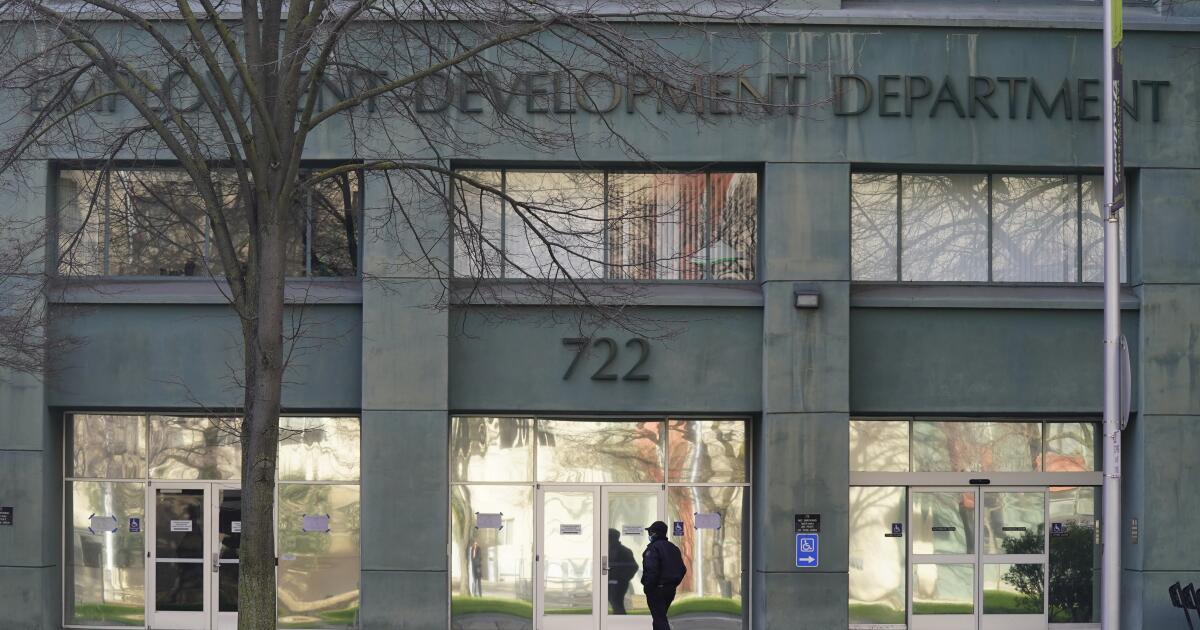
Hollywood labor groups are seeking answers amid an apparent crackdown by the state of California on the use of so-called loan-out corporations — a long-standing industry practice that helps actors, screenwriters and other entertainment workers organize their employment records and qualify for tax benefits.
Over the weekend, Hollywood payroll company Cast & Crew sent a memo to workers alerting them that the California Employment Development Department had said it was reviewing loan-out company activity, spurring swift responses from various organizations advocating for entertainment workers.
“It is anticipated that this will quickly become an industry-wide issue,” the memo read.
“This challenge appears to be targeted generally to the use of loan-out corporations in the entertainment production industry and would have a major impact on loan-outs working on countless productions in California.”
Cast & Crew added that it is “actively contesting the EDD’s position as well as working with union leadership and other entertainment companies to address this extremely important issue.”
Many actors, screenwriters and other entertainment workers are self-employed under their own loan-out corporations, which are single-person companies through which they “lend” their services to various film, TV and stage productions. They also qualify for certain tax breaks not otherwise available to individuals.
In a statement provided to The Times, the California EDD said Tuesday that it does not intend to “ban” loan-out companies in the state.
“We understand the great importance of California’s film and television industry and are proud of our work to support California’s employers and industries,” the EDD said after an influx of inquiries regarding its ongoing review of loan-out corporations.
“Our commitment is to ensure these taxes are collected according to state law. … We will continue our communication with industry representatives to ensure their concerns are heard and understood. We are optimistic that this dialog will help bring further clarity and information for the benefit of everyone who works in one of California’s most iconic industries.”
Because entertainment workers generally operate in a gig-based economy — hopping from one project to the next — it’s rare that they are consistently employed by a single company or entity, explained Kevin Klowden, executive director of MI Finance at the Milken Institute.
For this reason, Klowden continued, Hollywood players often create loan-out corporations to keep their employment records in one place.
Without banning loan-outs altogether, the EDD could hobble the established Hollywood system by requiring such corporations to pay certain taxes and fines, Klowden said.
He noted that this is probably part of a larger effort by Sacramento to penalize firms that hire workers for a number of short-term jobs without full benefits — which, on the surface, loan-out companies could appear to be.
Gig workers in the entertainment industry typically depend on unions to provide them with insurance and other benefits.
Hollywood labor unions representing performers, writers, crew members and other entertainment workers have responded to the EDD’s actions.
“IATSE is working closely with our allies in the entertainment industry labor movement, as well as Cast & Crew and other payroll companies, to closely monitor the EDD review of loan-out corporations and determine next steps,” said the International Alliance of Theatrical Stage Employees, which represents more than 60,000 crew members in the film and TV industry.
Performers union SAG-AFTRA said Saturday that it has been in contact with other Hollywood labor organizations to discuss the matter.
“We are all prepared to explain the history, validity, and importance of loan-out companies to entertainment industry workers, and highlight the devastating impact disregarding these entities would have on the industry,” said the Screen Actors Guild-American Federation of Television and Radio Artists, which represents about 160,000 performers.
The Writers Guild of America, West, added that it would “take any necessary action to preserve the long-standing use of loan-outs in this industry.”
Over the last week, guild members have taken to social media to post a memo from IATSE Local 695 (representing sound and video technicians) warning members that such a move by the EDD “would fundamentally change” the way that business is conducted in the entertainment industry.
According to Cast & Crew, loan-out corporations that incur notices from the EDD will have the opportunity to file a petition opposing the change.
So far, no alterations to current employment practices have gone into effect, according to a union source who was not authorized to comment.
-

 Movie Reviews1 week ago
Movie Reviews1 week ago‘The Substance’ Review: An Excellent Demi Moore Helps Sustain Coralie Fargeat’s Stylish but Redundant Body Horror
-

 Culture1 week ago
Culture1 week agoFrom Dairy Daddies to Trash Pandas: How branding creates fans for lower-league baseball teams
-

 News1 week ago
News1 week agoRed Lobster files for bankruptcy after missteps including all-you-can-eat shrimp
-

 World1 week ago
World1 week agoPanic in Bishkek: Why were Pakistani students attacked in Kyrgyzstan?
-

 News1 week ago
News1 week agoThe states where abortion is on the ballot in November : Consider This from NPR
-

 Politics1 week ago
Politics1 week agoMichael Cohen swore he had nothing derogatory on Trump, his ex-lawyer says – another lie – as testimony ends
-

 News1 week ago
News1 week agoCity of Kyle falls short of ‘Kyle’ world record
-

 Politics1 week ago
Politics1 week agoAnti-Israel agitators interrupt Blinken Senate testimony, hauled out by Capitol police














